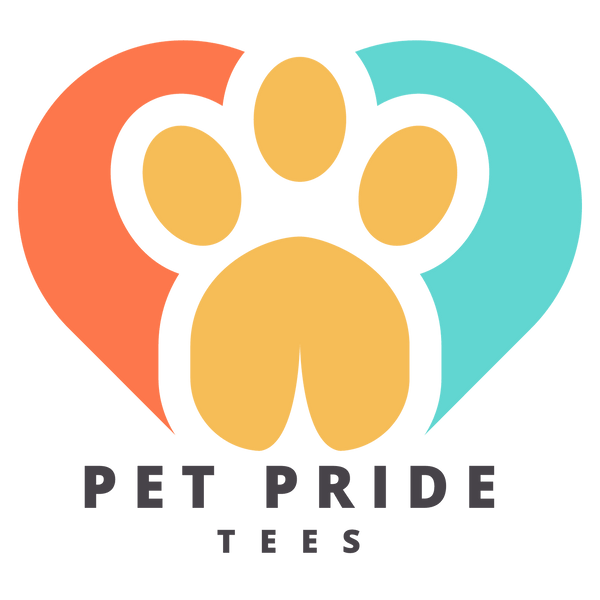
The Essentials of Pet Nutrition: A Guide for Pet Owners
Share
As a pet owner, understanding the basics of pet nutrition is crucial for the health and happiness of your furry companions. Whether you own a playful cat or a loyal dog, a solid foundation in pet nutrition can lead to a long and fulfilling life for your beloved pets. In this article, we will delve into vital aspects of pet nutrition, including what constitutes a balanced diet, important nutrients, and how to cater to the unique needs of various pets.
The Importance of a Balanced Diet
A balanced diet is not just important for human health; it is equally crucial for our pets. A well-rounded diet helps maintain their weight, supports their immune system, and enhances overall well-being. Here's why a balanced diet matters:
Maintaining Healthy Weights
Obesity is one of the leading health concerns for pets. An imbalanced diet can lead to excessive weight gain, which may result in serious health problems such as diabetes, heart disease, and joint issues. Keeping an eye on your pet’s caloric intake and ensuring they receive the right balance of nutrients is fundamental to their wellbeing.
Strengthening the Immune System
A proper diet boosts your pet’s immune system, helping them fight off diseases and infections. Pets that consume a variety of nutrients are less likely to fall ill, which ultimately saves you time and money on vet visits.
Essential Nutrients for Pets
Understanding the essential nutrients your pet requires is key to providing them with proper nutrition. Here are the primary nutrients that should be included in your pet’s diet:
Proteins
Proteins are primarily made up of amino acids, which are essential for building and repairing body tissues. Cats, being obligate carnivores, require a diet high in animal-based proteins, while dogs benefit from a mix of animal and plant-based proteins. Ensuring your pet receives high-quality protein is pivotal in maintaining muscle mass and overall health.
Fats
Fats are an essential source of energy for your pets. They also play a major role in maintaining healthy skin and a shiny coat. Omega-3 and Omega-6 fatty acids are particularly beneficial, and many pet foods incorporate these vital nutrients. Fats should make up around 5-15% of your pet’s diet.
Carbohydrates
Carbohydrates provide energy and can help keep your pet feeling full. However, a significant portion of their diet should come from proteins and fats rather than carbs. Opt for high-quality sources of carbohydrates such as fruits and vegetables, which also offer essential vitamins and minerals.
Vitamins and Minerals
A varied diet should also include necessary vitamins and minerals. These micronutrients support various body functions, including bone health and cognitive function. Look for nutrients such as calcium, phosphorus, vitamin A, and B vitamins in your pet’s diet to ensure they are meeting their nutritional needs.
Understanding Specific Dietary Needs
Every pet has unique dietary requirements based on their species, age, and health conditions. Here’s a look at how you can cater to some common needs:
Age Considerations
As pets age, their nutritional needs change. Puppies and kittens require more calories and nutrients to support their rapid growth. In contrast, senior pets may need a diet lower in calories but higher in fiber to support digestive health. Adjusting their diet based on their life stage is crucial.
Health Conditions
Some pets may suffer from health issues like allergies or diabetes. If your pet has a specific health concern, consult with your veterinarian to create a tailored diet plan. Often, hypoallergenic or specialized diets can help manage these conditions effectively.
Pet Size and Breed
The size and breed of a pet can determine their nutritional needs as well. Larger breeds may have different dietary requirements compared to smaller breeds. For example, Dachshunds may not need as high of a calorie intake as larger breeds, but they still require a well-balanced diet to support their unique body structure.
Choosing the Right Pet Food
With various pet food options available on the market, choosing the right one can be overwhelming. Here are some tips to ensure you select a high-quality option:
Read the Ingredients
Always check the ingredient list on pet food products. The first few ingredients should ideally be quality proteins, followed by whole grains, vegetables, and avoid artificial preservatives or fillers.
Look for AAFCO Approval
The Association of American Feed Control Officials (AAFCO) sets the guidelines for pet food labeling. Look for products that meet AAFCO standards to ensure the food has been checked for nutritional adequacy.
Consider Your Pet's Preference
Some pets may prefer wet food over dry food, or vice versa. Keep your pets’ preferences in mind when selecting a food, as dogs and cats can be finicky eaters. Sometimes a combination of both can satisfy their taste buds.
Special Treats and Diet Supplements
While focusing on a balanced diet, it’s also essential to consider treats. However, treats shouldn’t compromise your pet’s overall nutrition. Here’s how to do it right:
Healthy Treat Options
Opt for treats made from natural ingredients, such as dried fruits or vegetables, that can provide additional nutrition without added fillers. Some common healthy treats include:
- Carrot sticks
- Apple slices (without seeds)
- Green bean bites
Supplements
Sometimes pets may require additional supplements to address specific health needs. Omega fatty acids, glucosamine, and probiotics are popular supplements that can help support joint health and digestion. Always consult your veterinarian before introducing any supplements into your pet’s diet.
Feeding Guidelines and Techniques
How you feed your pet is as important as what you feed them. Implementing proper feeding techniques can significantly impact their eating habits and health.
Establish a Routine
Consistency matters when it comes to pet feeding times. Establishing a feeding schedule can help regulate their appetite and digestion. Most pets thrive on a twice-daily feeding schedule, while kittens and puppies may require more frequent meals.
Portion Control
Be mindful of portion sizes to maintain a healthy weight. Following the feeding guidelines provided on pet food packaging can help you avoid overfeeding. It may take some trial and error to find the right portion size for your pets.
Hydration is Key
Fresh water should always be available for your pets. Hydration plays a crucial role in overall health. Ensure that they have access to clean water at all times, and consider offering water alongside dry kibble for added hydration.
Myths About Pet Nutrition
Pet nutrition is often clouded by many myths. Let’s debunk some of the most common misconceptions:
Cats Can Thrive on a Vegetarian Diet
This is false. Cats are obligate carnivores, meaning they require nutrients found in animal products to thrive. A meat-free diet can lead to severe health issues for them.
Grain-Free Diets are Best for All Pets
While some pets may require a grain-free diet due to allergies, many pets can digest grains easily. Unless your pet has a specific allergy or sensitivity, there is no need to eliminate grains entirely.
Raw Diets are the Best Option
Raw diets have gained popularity, yet they may not be suitable for every pet. Raw diets can pose risks of bacterial infections and nutrient imbalances. Make sure to consult with a veterinarian before switching to a raw diet.
Supportive Nutrition for Specific Pet Types
Different pets may have specific nutritional needs. For example, while dogs generally thrive on a more diverse diet, cats require specific nutrients like taurine, which is found primarily in meat. Understanding these needs helps in crafting the right individual diets.
Cats
Cats require a higher protein content and specific nutrients that can only be obtained from animal sources. Regular vet check-ups can help keep track of their health and dietary requirements as they age.
Small Breeds Like Dachshunds
Small breed dogs like Dachshunds have a unique metabolism. They benefit from diets geared towards maintaining healthy weight due to their predisposition to obesity. Choosing a well-balanced food, coupled with appropriate portion sizes, can lead to a healthier, happier dog.
Pet Pride: Passion Meets Nutrition
At Pet Pride Tees, we understand the significance of proper pet nutrition, and we wish to empower our customers with the knowledge they need to make informed decisions. Caring for your pets goes beyond toys and accessories; it involves fostering their health and wellness through good nutrition.
Putting together the right nutrition plan is essential as a responsible pet owner. Whether it’s finding the best diet for your feline friend, selecting a safe and healthy treat, or choosing between a Dachshund tote bag for your shopping needs, we are here to provide expert guidance and quality products that align with your pet’s needs.
So, fluff up those tails and embrace the journey of pet nutrition with confidence, ensuring that your companions lead healthy and vibrant lives! Let's nurture the love we share with our pets, enriching their experience through knowledge and care.

